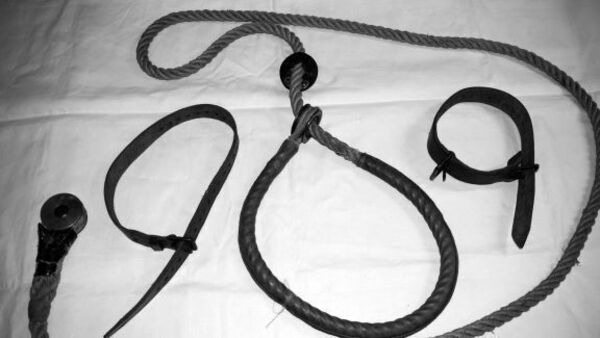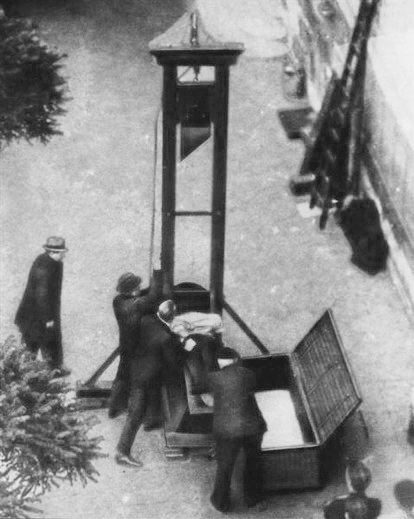Your cart is currently empty!
Plymouth’s Own Duncan Scott-Ford – The ‘£18 Traitor.’
Duncan Scott-Ford’s mugshot taken after his arrest on a charge of treason. Plymouth, being a harbour and garrison town, has had its fair share of maritime heroes. Discuss the history of the place and you’ll certainly be told endless tales about Sir Francis Drake’s defeat of th Spanish Armada in 1588, the fact…
Duncan Scott-Ford’s mugshot taken after his arrest on a charge of treason.
Plymouth, being a harbour and garrison town, has had its fair share of maritime heroes. Discuss the history of the place and you’ll certainly be told endless tales about Sir Francis Drake’s defeat of th Spanish Armada in 1588, the fact that Charles Darwin wrote his ‘Origin of Species’ after a trip from Plymouth to the South Atlantic aboard the Beagle, the fact that heavy cruiser HMS Exeter (legendary after 1939’s Battle of the River Plate) was a Plymouth ship and so on. You’ll probably not hear mention of of the fact that another local mariner, Sir John Hawkins, was keenly involved with the slave trade, that when the Tolpuddle Martyrs were transported to penal colonies for the heinous crime of starting a trade union they were transported from Plymouth or that legendary American gangster ‘Legs’ Diamond tried to make Plymouth his port of entry before Home Office officials refused to let him off the boat. When people are boosting thir town’s history they tend to skip over its less desirable events and personalities and Plymouth is no exception. I should know, I was born there and it’s a place that I can take or leave.
So the local boosters and tub-thumpers won’t mention Duncan Scott-Ford. He’s wasn’t the brightest of lightbulbs, he was a petty fraudster dismissed from the Royal Navy amid some ignominy and he was a traitor who sold out his country, his comrades (and ultimately his own life) for the princely sum of 1000 Portuguese escudos, worth around £18 in 1942 and shortly afterward he faced the gallows for treachery.
All in all, not somebody the locals would include in some puff piece intended to encourage outside investment and to bring tourists and their money.
Duncan Scott-Ford was actually born Duncan Alexander Croall Smith on September 4, 1921. His father served in the Royal Navy until he died of pneumonia (itself brought on by an overdose of morphine during a suicide attempt) on March 23, 1933. His son decided to change his name to improve his social standing, given that suicide is regarded as dishonourable in the British military and also enlisted himself. He started out at Devonport in the shore base HMS Impregnable, having enlisted in 1937 when aged only16. His naval career lasted only a few years.
In 1939 his ship, the cruiser HMS Gloucester, was making a goodwill visit to Dar-es-Salaam. Our hapless hero became infatuated with a German, whom MI5 later came to believe he had supplied with secret information including some British naval codes. That was never proved, but it was only the first time his honesty was to be questioned. He was transferred to a base in Egypt where he promptly became infatuated with a local prostitute. Prostitutes being interested in money, and Scott-Ford not having very much to spend, he was caught having altered entries in his Post Office account book. Result: A court martial sentenced him to two years imprisonment and a dishonourable discharge.
His mother, after much pleading on behalf of her errant and rather witless son, managed to get the sentence considerably reduced. After her intervention he received and honourable discharge and his jail term was reduced to six months to be served in England rather than Egypt. Perhaps she thought he might be less wayward if he was home where she could keep an eye on him. She was wrong. After his release he briefly lived with her in Plymouth until they quarrelled over her alleged misuse of money sent home out of his naval pay. They quarrelled bitterly and he promptly left to join the Merchant Navy and was posted to the SS Finland, arriving in Lisbon in May, 1942.
Lisbon, being in Portugal, was in neutral territory. Portugal in general, and Lisbon in particular, were hotbeds of espionage and intrigue. German and British citizens and officials could meet and mingle freely (if not always civilly) and Portugal provided a jump-off point for any spy looking to secretly enter neutral Spain or Vichy France found it far easier to do so from Portugal than most other places. Portugal is also home to several harbours where German and British ships nd their crews often encountered each other. It was where Duncan Scott-Ford encountered German Intelligence, the Abwehr) and made a deal with them. It was a deal he no doubt bitterly regretted later.
The deal was a death-trap right from the start, a classic honey trap. Spies like the honey trap because it allows them to lure in potential agents with false promises and manipulation before employing outright blackmail to keep them working. It usually takes a little time to set up but, once it’s in place, it’s a classic recruiting technique. You find a likely recruit, get them to do you small favours, nothing heavy at first, and then ease them into outright treachery. If their conscience or fear of being caught makes them refuse to go on, then you simply threaten to blow their cover and let their own side deal with them. In intelligence circles, especially during wartime, this is likely to involve either an assassin’s bullet or a hangman’s noose.
Not loang after reaching Lisbon Scott-Ford met a dubious character. a Mr. Rithman, who promised he could get a letter from Scott-Ford to the German girl he’d met while in Dar-es-Salaam. But he wanted a little favour in return. If Scott-Ford could confirm the rumour then floating round Lisbon all British ships had been ordered to be in port by June 28, then the letter would be delivered and Scott-Ford would be paid 1000 Portuguese escudos. Scott-Ford, seemingly unaware that this transcation alone constituted espionage and aiding the enemy, both capital crimes, agreed to meet Rithmann the next day and did so. He couldn’t confirm the rumour, but he met Rithmann and a mysterious ‘Captain Henley.’ The trio talked general gossip for a while about British morale, public opinion, Winston Churchill’s public profile and popularity and Scott-Ford was asked how well German air raids were damaging British morale and industrial capacity. ‘Henly’ passed over the 1000-escudo note as promised and they arranged another meeting for a few days later. This would be the meeting that sealed Duncan Scott-Ford’s status as a traitor and eventually put his neck in a noose.
At their next meeting the requested information was more substantial. Scott-Ford was asked for information about British naval minefields, on the continuing arrival an American servicemen into the UK and to rpivde the latest copies of Jane’s Fighting Ships and Jane’s All the World’s Aircraft. He was also asked to sign for the money he’d already received which, like a true master spy, he signed for in his own name. The Bawehr now had all they needed to blackmail him into providingwhatver information they wanted and the British courts had all the evidence needed to see that this particular sailor danced the hangman’s hornpipe. It wouldn’t be very long before Duncan Scott-Ford did exactly that.
The SS Finland sailed the next day, arriving at Liverpool a few days later. On their arrival all crewmen were questioned regarding any approaches that might have been made to them by German agents. Showing a rare flash of intelligence, Scott-Ford admitted he’d been approached (neatly avoiding anybody being able to state they’d seen him being approached), but denied having supplied any information. That questioning should have been a warning. It was a warning that he ignored with fatal results.
In July, 1942 the SS Finland was back in Lisbon. Scott-Ford promptly met his handlers, received another 500 escudos which, true to form, he was stupid enough to sign for in his own name and told his handlers he’d been unable to obtain the books they wanted. Now the honey trap became far less sweet for him. The Abwehr agents threatened to hand his receipts to the British. Panicking, he gave them details of the convoy’s escorting warships, of the convoy itself, the location of an important aircraft factory in the UK and of how Allied troops were preparing and training to invade Europe. The meeting ended with Ford accepting another 100 escudos and agreeing to provide details of his convoy’s return route and speed, details that were doubtless passed on to U-boat wolfpacks prowling the North Atlantic.
On arrival in England he was questioned again about approaches from German agents. Being questioned twice in two trips should have been an even louder alarm bell ringing, but with the Abwehr in total control of his future it would have made little difference. German intelligence owned Duncan Scott-Ford and it was a choice between confessing and hoping to avoid the gallows or continuing to work for the Abwehr. Scott-Ford confessed, was arrested and detained secretly to be investigated and tried for treachery. A search of his quarters aboard the SS Finland provided the clincher when written details of the convoy’s route, speed and escort warships were found in his room.
After British Intelligence decided he would be no use to them for feeding false intelligence to the Abwehr (and of far greater use as an example to any other seaman thinking of supplementing their income) Duncan Scott-Ford was tried secretly before Mr. Justice Birkett. The trial and sentence were mere formalities. He was convicted and condemned to death on October 16, 1942. His lack of value as a triple agent sealed his fate and there would be no reprieve.
Duncan Scott-Ford was hanged by that most famous British executioner, the chief public hangman himself, Albert Pierrepoint at 9am on November 3, 1942.Only after his execution were details of his arrest and trial even made public. If he’d been of any use as a triple agent then his capture needed to be kept secret from the Abwehr but, once the spies controlling the British ‘Double Cross’ system used for ‘turning’ German agents decided he was worthless to them, secrecy was unnecessary and a public example could be made.
All in all, Duncan Scott-Ford was a greedy and foolish young man and an incompetent, naïve, reckless traitor who bartered his life and the lives of many others for a pittance.
Not somebody you’ll find in Plymouth’s tourist literature.





Leave a Reply